UNEP Goodwill Ambassador Gisele Bundchen Backs ‘Small is Beautiful’ Energy Solutions on First Mission to Africa
UNEP Goodwill Ambassador Gisele Bundchen Backs ‘Small is Beautiful’ Energy Solutions on First Mission to Africa
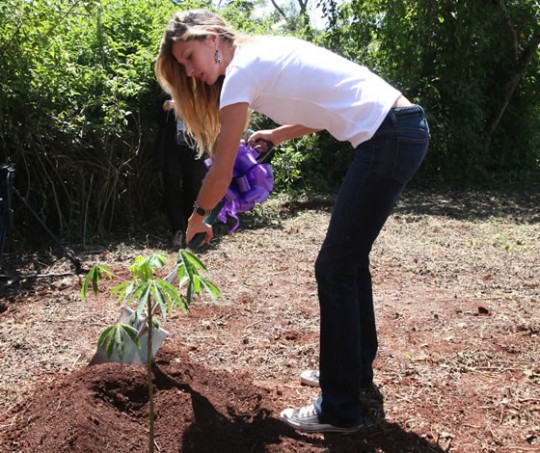 Gisele visits UNEP Headquarters – Describes her experience in the field.
Gisele visits UNEP Headquarters – Describes her experience in the field.
…
…
On her first official visit to Africa, UNEP Goodwill Ambassador and iconic face of fashion, Gisele Bündchen, went to the grassroots level in Kenya to experience the reality of energy poverty and to see how Kenyans are transforming their lives by accessing sustainable energy.
International Year of Sustainable Energy for All
Nairobi, 12 January 2012 On her first official visit to Africa, UNEP Goodwill Ambassador and iconic face of fashion, Gisele Bündchen, went to the grassroots level in Kenya to experience the reality of energy poverty and to see how Kenyans are transforming their lives by accessing sustainable energy.
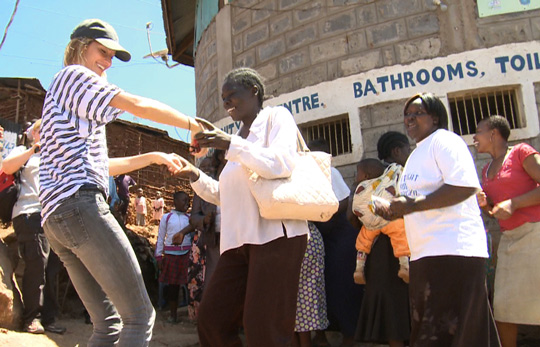 Gisele during a visit to an Energy Project in Kibera, Nairobi, Kenya.
Gisele during a visit to an Energy Project in Kibera, Nairobi, Kenya.
“Energy affects everything. Children can study at night when they have access to electricity. If we can bring electricity to everyone, we can help people to survive,” she told a press conference at the UN Environment Programme’s (UNEP) headquarters in Nairobi.
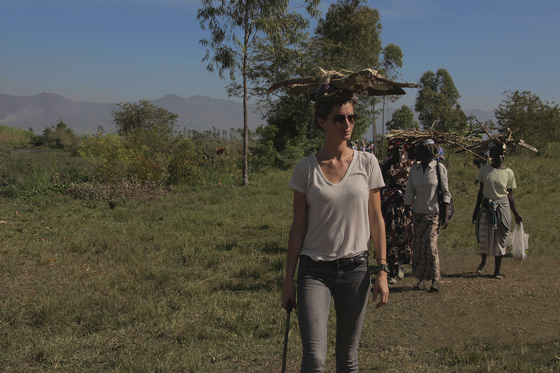 Gisele collecting firewood with women in Kisumu, Kenya.
Gisele collecting firewood with women in Kisumu, Kenya.
“It’s unjust if people do not have access to electricity. Energy for all is achievable. Just 2% of global investment is needed,” she added, speaking in the runup to the global launch of the International Year of Sustainable Energy for All (IYSEA).
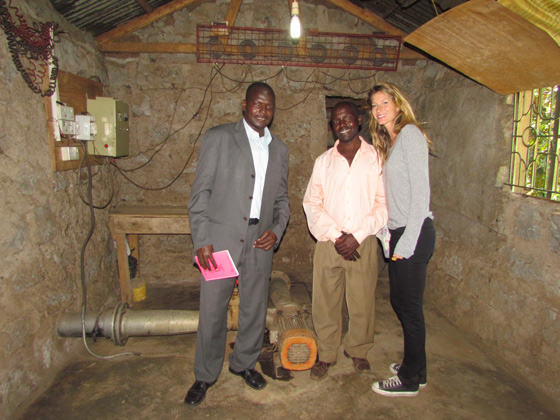 Gisele visits Hydro-power plant near Mt. Kenya.
Gisele visits Hydro-power plant near Mt. Kenya.
Ms. Bündchen‘s visit to Kenya took her to Kibera, East Africa’s largest slum, to look at biogas centers (turning human waste into power), to Kisumu, in western Kenya, where she took part in collecting firewood and learned about fuel-efficient cook stoves and to the Mount Kenya area where micro-hydro power is bringing electricity to over 2,000 households.
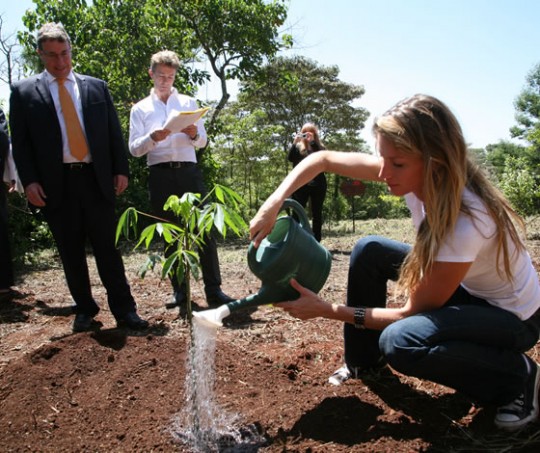 Gisele visits UNEP Headquarters – Describes her experience in the field.
Gisele visits UNEP Headquarters – Describes her experience in the field.
While gains have been made in accessing electricity in the past two decades, huge gaps still remain. One in every five people on the planet do not have access to electricity. In Sub-Saharan Africa some 70 percent of the population have no electricity, while in Kenya only 18 percent of households have power.
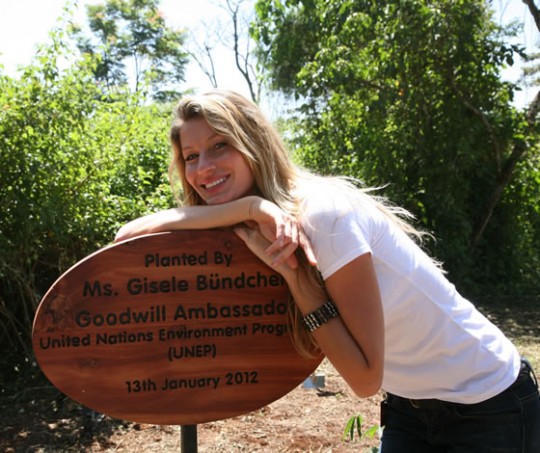 Gisele visits UNEP Headquarters – Describes her experience in the field.
Gisele visits UNEP Headquarters – Describes her experience in the field.
Access to adequate fuels for cooking is also a major challenge, with many families still dependent on wood which produces toxic smoke, impacting the health of women and children. Around half the world’s population cook on open indoor fires and each year over 2.5 million people die prematurely as a result of breathing in emissions from these cook stoves, primarily from a substance called black carbon, also known as soot.
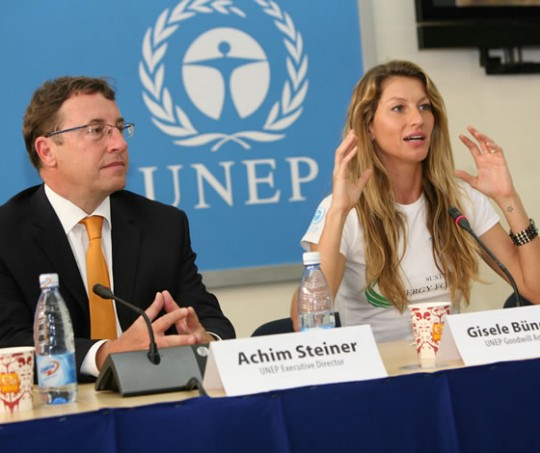 Gisele visits UNEP Headquarters – Describes her experience in the field.
Gisele visits UNEP Headquarters – Describes her experience in the field.
Many more are blighted by ill health, such as chronic bronchitis. Meanwhile, black carbon is emerging as an important climate change pollutant and is also implicated in crop damage.
“We don’t hear about this and yet the solutions are so simple,” added Ms. Bündchen, who has recently been named the ‘world’s greenest celebrity’. “When we come out of our bubbles and travel, you experience what I did in Kenya and it’s amazing how we can change our viewpoints You ask what can we do in our daily lives to make change. Everybody can help in a different way,” she said.
“She speaks for the issues and she speaks from the heart. We were lucky to get her as a Goodwill Ambassador. It’s important to go out and meet people, which is part of making someone a great ambassador who can in turn communicate to millions of people that, for example, sustainable energy for all is possible, that it is one powerful way of motivating and catalyzing positive change in the run-up to Rio+20 in June this year,” said UN Under Secretary General and UNEP Executive Director Achim Steiner.
“We need to change our way of thinking and not think globally but locally. In Africa two thirds of the population still do not have access to energy. There are solutions at the local and community levels. I have a dream that with photovoltaic energy we can build grids up from the bottom and that one day we will see rural areas generating electricity and selling energy to the cities,” he added.
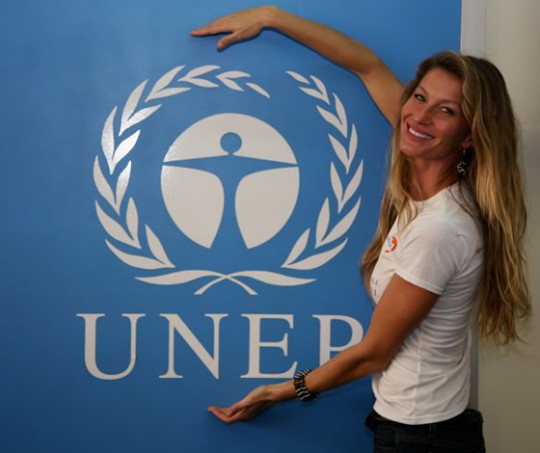 Gisele visits UNEP Headquarters – Describes her experience in the field.
Gisele visits UNEP Headquarters – Describes her experience in the field.
Kenya is increasingly developing its geothermal, wind, solar and hydro power resources at the local level.
UNEP has worked to realize and to accelerate the use of renewable energies within the overall theme of a Green Economy, with a special emphasis on Africa, and Kenya in particular. The UN’s new office facility in Nairobi, which Ms. Bündchen visited and which houses UNEP and UN-HABITAT, has 6,000 square meters of solar panels and generates as much electricity as its 1,200 occupants consume.
Ms. Bündchen‘s visit, which was organized by Practical Action in partnership with UNEP, was designed to raise the profile of the IYSEA and highlight the importance of energy access globally.
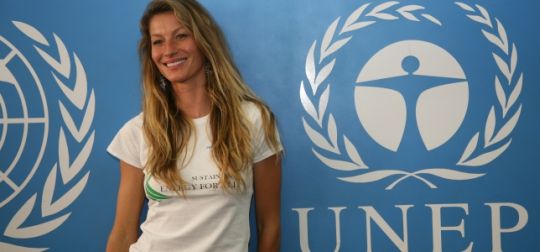
UNEP Goodwill Ambassador Gisele Bündchen. Photo: UNEP
“As a UNEP Ambassador, Gisele recognises that no issue is more relevant to the future of the global economy, the prosperity and well-being of the world’s poorest people, and the preservation of our planet, than sustainable energy. Her passion, credibility and commitment to energy access will draw significant attention to this pressing development issue and help to ensure that in two decades times, every women, man and child has access to the power to challenge work their way out of poverty,” said Margaret Gardner, Director at Practical Action.
Practical action, a non-governmental organization headquartered in the United Kingdom, works with poor communities to provide them with small-scale solutions to overcome their poverty.
Ms. Bündchen became a UNEP Goodwill Ambassador in 2009.
###
…
UNEP Goodwill Ambassador Gisele Bündchen visits Kenya/Added on Feb 10, 2012
…
###
About UN Environment Programme (UNEP)
Mission: “To provide leadership and encourage partnership in caring for the environment by inspiring, informing, and enabling nations and peoples to improve their quality of life without compromising that of future generations.”
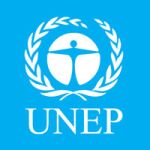
UNEP, established in 1972, is the voice for the environment within the United Nations system. UNEP acts as a catalyst, advocate, educator and facilitator to promote the wise use and sustainable development of the global environment. To accomplish this, UNEP works with a wide range of partners, including United Nations entities, international organizations, national governments, non-governmental organizations, the private sector and civil society.
UNEP work encompasses:
· Assessing global, regional and national environmental conditions and trends
· Developing international and national environmental instruments
· Strengthening institutions for the wise management of the environment
· Facilitating the transfer of knowledge and technology for sustainable development
· Encouraging new partnerships and mind-sets within civil society and the private sector.
UNEP’s global and cross-sectoral outlook is reflected in its organizational structure, its activities and is personnel. Being based in Africa gives UNEP a clear advantage in understanding the environmental issues facing the world’s developing countries.
To ensure its global effectiveness UNEP supports six regional offices, plus a growing network of centres of excellence such as the Global Resource Information Database (GRID) centres and the UNEP World Conservation Monitoring Centre (UNEP-WCMC). UNEP also has major offices in Geneva and Paris, where its Division of Technology, Industry and Economics is situated.
UNEP also hosts several environmental convention secretariats including the Ozone Secretariat and the Montreal Protocol’s Multilateral Fund, CITES (the Convention on International Trade in Endangered Species of Wild Fauna and Flora), the Convention on Biological Diversity, the Convention on Migratory Species, and a growing family of chemicals-related agreements, including the Basel Convention on the Transboundary Movement of Hazardous Wastes and the recently negotiated Stockholm Convention on Persistent Organic Pollutants (POPs).
###
> United Nations (UN).
 The United Nations was established on 24 October 1945 by 51 countries committed to preserving peace through international cooperation and collective security. Today, nearly every nation in the world belongs to the UN: membership totals 192 countries.
The United Nations was established on 24 October 1945 by 51 countries committed to preserving peace through international cooperation and collective security. Today, nearly every nation in the world belongs to the UN: membership totals 192 countries.
When States become Members of the United Nations, they agree to accept the obligations of the UN Charter, an international treaty that sets out basic principles of international relations. According to the Charter, the UN has four purposes:
- to maintain international peace and security;
- to develop friendly relations among nations;
- to cooperate in solving international problems and in promoting respect for human rights;
- and to be a centre for harmonizing the actions of nations.
###
* The above story is adapted from materials provided by United Nations (UN)
** More information at United Nations (UN)




















